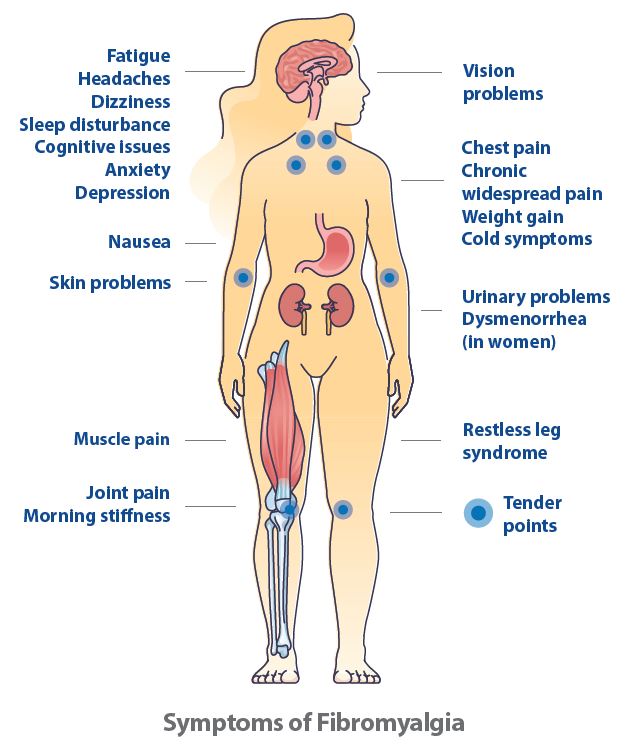Articles by Laxmaiah Manchikanti, MD
and Mahendra Sanapati, MD

What is Fibromyalgia?
Fibromyalgia syndrome is a common and chronic disorder with widespread musculoskeletal pain associated with fatigue, sleep, memory, and mood issues. Researchers believe that fibromyalgia amplifies painful sensations by affecting the way the brain processes pain signals. In the majority of cases, symptoms gradually accumulate over time with no single triggering event. Women are much more likely to develop fibromyalgia than are men.

A fibromyalgia diagnosis is based on a history of widespread pain lasting more than 3 months. Cognitive and memory problems associated with fibromyalgia have been described as fibro fog.
Unfortunately, patients suffering with fibromyalgia may also suffer with multiple other problems, including spinal pain or neuropathic pain. They also may have depression, anxiety, and other psychological problems.
Fibromyalgia may be treated with medical therapy, behavior modification, rehabilitation modalities, and by improving sleep. Only 3 medications, Cymbalta, Savella, and Lyrica, are approved by the U.S. Food and Drug Administration for the treatment of fibromyalgia. Neurontin is also commonly used for fibromyalgia.
